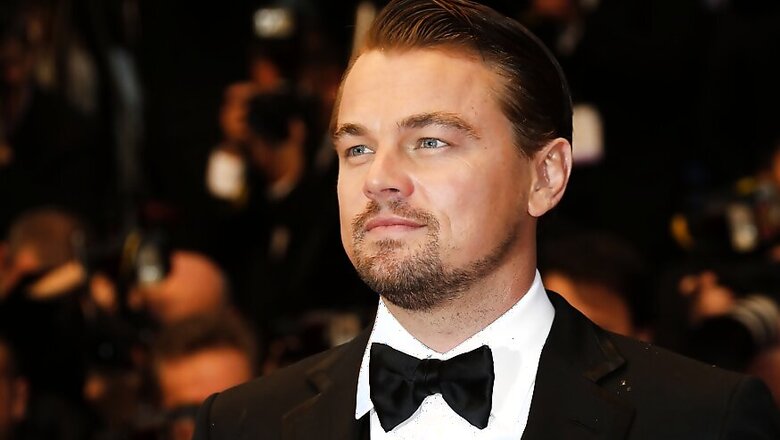
views
American movie star Leonardo DiCaprio unveiled a new, free technology that allows users to spy on global fishing practices, in a bid to curb illegal activity in the oceans.
The technology, known as Global Fishing Watch, was officially released to the public during the Our Oceans Conference hosted by US Secretary of State John Kerry in Washington on Thursday and Friday.
It aims to offer a crowd sourced solution to the problem of illegal fishing, which accounts for up to 35 per cent of the global wild marine catch and causes yearly losses of $23.5 billion, according to the UN Food and Agriculture Organization.
Overfishing is also a growing problem worldwide, with about two-thirds of fish stocks in the high seas either over exploited or depleted, said the FAO. Some of the planet's largest fish, including tuna and swordfish, are below 10 per cent of their historical level.
Using satellite technology combined with radar aboard boats, the site GlobalFishingWatch.org allows people to zero in on areas of interest around the world and trace the paths of 35,000 commercial fishing vessels.
"It gives the public an opportunity to see what is happening, even out in the middle of the ocean," said John Amos, president and founder of SkyTruth, one of three partners in the project along with Google and Oceana.
"We need the public to be engaged to convince governments and convince the seafood industry that they need to solve the problems of overfishing," Amos told AFP.
"If you can't see it and can't measure it, you are not going to care about it and it is not going to get solved."DiCaprio-Funded
The project has cost $10.3 million over the past three years to build, with $6 million of those funds contributed by the Leonardo DiCaprio Foundation in January.
Other funders include the Marisla Foundation, Bloomberg Philanthropies, The Wyss Foundation, The Waterloo Foundation and Adessium Foundation.
DiCaprio, well known for his commitment to the environment, is scheduled to highlight Global Fishing Watch and a series of other solutions for oceans at 1:30 pm (1730 GMT) Thursday, in a presentation viewable online at www.ourocean2016.org.
In order the make the data available for free, Oceana and its partners negotiated a deal with the satellite company Orbcomm to use its three-day old data, which is described as "near real-time," along with historical records.
Although the delay means that any criminals won't be nabbed instantaneously, advocates say the technology will open the world's waters to public watchdogs in a way that has never been done before.
"We think it is going to have a lot of impact, first of all just the deterrent effect of vessels knowing that we could see them if they are doing something they are not supposed to be doing," Savitz said.
"You can look at an area you are interested in, zoom in and see what data we have." Possible Uses
For instance, users could zero in on a marine protected area and see if any boat tracks have crossed into waters where they should not have been.
One could scan the map for any evidence that large vessels are fishing in areas that are reserved for small-scale fishermen.
Vessels can be tracked by name or by country, or by traffic inside exclusive economic zones.
The paths of ships are visible, including zigzag paths that could indicate vessels are avoiding shore to offload their catch on to other ships undetected, or that other illegal operations or human rights abuses may be under way.
Savitz said some capacities may be beyond the ability of the average Internet user, but that experts are available via the website to help with specific questions.
Future versions of the technology may even include tagging data for marine animals, so that the paths of whales and sharks and other fish might be visible alongside the vessel activity, she said.
Currently, Global Fishing Watch does not include every vessel, only those that broadcast data from the Automatic Identification System, collected by satellite and terrestrial receivers and meant mainly as a safety mechanism to avoid collisions.
Many of the world's largest fishing vessels are required by the International Maritime Organization to use AIS.
AIS can be turned off if the boat operator is doing something illegal, but Savitz said that such an on-off action would likely be apparent by tracing the boat's appearing and disappearing tracks.
Already, the government of Kiribati has used Global Fishing Watch data to unmask illegal fishing in the Phoenix Islands Protected Area, declared off-limits to commercial fishing on January 1, 2015.
The owners of the vessel had to pay a $1 million fine and also made a "goodwill" donation of another $1 million grant, Oceana said.


















Comments
0 comment